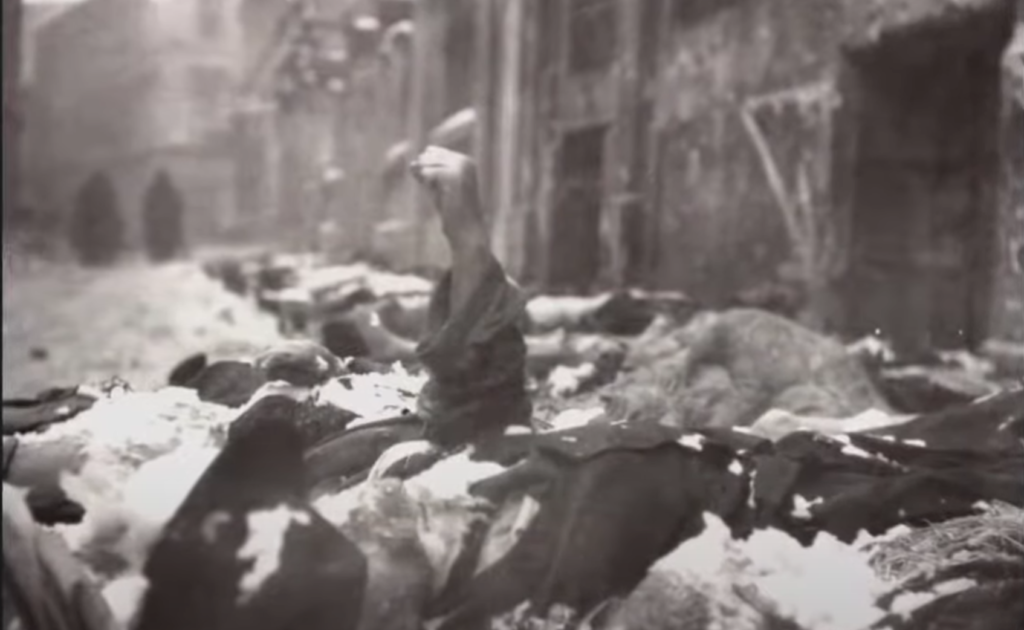Rod Dreher

When I was in Warsaw recently, I got into a couple of intense discussions with Poles about the Ukraine war. I really love and respect the Polish people, and cherish how the Polish and Hungarian governments have stood side by side against the dictatorship of wokeness in Brussels. And I grieve over how the Ukraine war has caused a deep division between them. The Poles are extremely aggressive in their defense of Ukraine, and in their support for the war against Russia. They hate the Russians, for entirely understandable historical reasons. The Hungarians are also no fans of the Russians, for similar historical reasons, but have been pushing from the beginning for some kind of peace agreement, before the war destroys Europe economically, or worse. The Poles see this as weakness in the face of Putin's aggression.
I told a Polish friend with whom I was arguing about this that the kind of rhetoric I was hearing from him and his side reminded me of the way I and people like me thought and talked after 9/11. We dismissed anything that was not full-throated support for the Iraq War as weakness, as cowardice, as a foolish refusal to understand the reality of the threat from Islamic terrorism. We would not hear people who cautioned against war, because our fear and loathing of the Enemy was so great. And we allowed ourselves to lead our country, and Iraq, to disaster.
"Yes, but Iraq is not Russia," said my friend, sensibly. "There were no weapons of mass destruction. Iraq had nothing to do with 9/11. Russia invaded Ukraine."
That is true, I conceded; the analogy is limited. But I am talking about the mode of discourse, and the rhetoric, I explained. We have to be able to listen to each other, to reason as dispassionately as possible, and not to be led by our passions into the abyss. My friend believes that the war shouldn't end until Russia is driven back completely to the pre-war borders, and Ukraine has retaken Crimea. I told him that was completely unrealistic, that this is a recipe for forever war. He thinks I'm completely deluded about Russian imperialism, and that I am failing morally to support Ukraine. We left it at an impasse.
That conversation came to mind this morning when I read this piece in National Interest by Balazs Orban, the political director of Prime Minister Viktor Orban (no relation), and the most important political thinker in Hungary. He writes, of the war:
Over a hundred years later, the ghosts of 1914 haunt us once again, as Europe is sleepwalking into a conflict it cannot possibly win. Russia started an ideological war with the West, while the West in turn sees itself as the guardian of the liberal world order. Both parties are giving wrong answers to the wrong questions, as they are equally kept hostage to their imperial ideologies and narrow-minded thinking. Over the past few months, it has become obvious that all sides have massively misjudged the situation. Europe, an energy dwarf, is trying to put pressure on Russia, an energy titan, with sanctions. The attempt is clearly in vain, and is visibly ruining the economies of EU Member States. The warring parties also attack each other’s critical infrastructure, with an ever-growing number of civilian casualties along the way. The mobilization of the Russian army implies a deepening of the conflict, and at this dangerous moment, an increasing number of voices call upon the West to become directly involved, even if that means a possible escalation over the nuclear threshold. Western Europeans are perhaps only trigger-happy now because the younger, more recent generations do not remember the reality of war anymore, and the kind of suffering it brings to the everyday citizen.
Yes, that is the thing that stood out to me the most, talking to ordinary Hungarians this past spring, in the days immediately following the Russian invasion. Every one of them recalled the detailed stories their parents or grandparents told them about the Siege of Budapest near the end of World War II. It was one of the most intense battles of the entire war. I strongly urge you to watch on YouTube this documentary about the Siege -- in Hungarian, with English subtitles -- because it brings home with almost unbearable intensity the horrors of war. In fact, last week I had dinner with a Hungarian friend who is just back from Ukraine, where she helped deliver relief supplies on behalf of her charitable network. She reported that the ordinary Ukrainians she talked to are exhausted, and just want the war to end. Now, to be sure, the Polish people also know a lot about the horrors of war, from their excruciating World War II experience!
More Balazs Orban:
In 1914, we Hungarians were the loudest critics of the war, and we are committed to upholding this position a century later. Count István Tisza, then prime minister of Hungary was the first to point out that the war would have no winners. Today, Prime Minister Viktor Orbán is doing the same, becoming the loudest critic of the war by stressing that we need to call for an immediate ceasefire, for otherwise, the war has no end in sight.
That's true. But who in power, other than the Hungarians, wants an end to the war? Yesterday, two powerful Republican Congressmen, both of whom are going to lead committees that will be dealing with US involvement in the Ukraine war, went on ABC's This Week and proclaimed their hyper-hawkish position on Ukraine. The open US checkbook for the war will continue, with no end in sight.
No comments:
Post a Comment